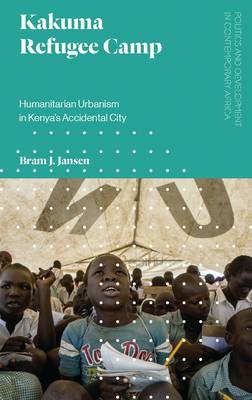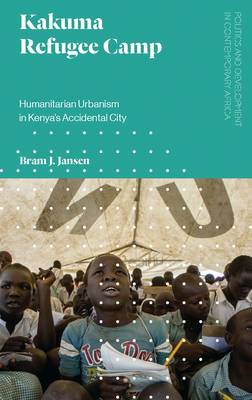
- Retrait gratuit dans votre magasin Club
- 7.000.000 titres dans notre catalogue
- Payer en toute sécurité
- Toujours un magasin près de chez vous
- Retrait gratuit dans votre magasin Club
- 7.000.0000 titres dans notre catalogue
- Payer en toute sécurité
- Toujours un magasin près de chez vous
Description
Kenya's Kakuma refugee camp is one of the world's largest, home to over 100,000 people drawn from across east and central Africa. Though notionally still a 'temporary' camp, it has become a permanent urban space in all but name with businesses, schools, a hospital and its own court system. Such places, Bram J. Jansen argues, should be recognised as 'accidental cities', a unique form of urbanization that has so far been overlooked by scholars.
Based on extensive ethnographic fieldwork, Jansen's book explores the dynamics of everyday life in such accidental cities. The result is a holistic socio-economic picture, moving beyond the conventional view of such spaces as transitory and desolate to demonstrate how their inhabitants can develop a permanent society and a distinctive identity. Crucially, the book offers important insights into one of the greatest challenges facing humanitarian and international development workers: how we might develop more effective strategies for managing refugee camps in the global South and beyond. An original take on African urbanism, Kakuma Refugee Camp will appeal to practitioners and academics across the social sciences interested in social and economic issues increasingly at the heart of contemporary development.Spécifications
Parties prenantes
- Auteur(s) :
- Editeur:
Contenu
- Nombre de pages :
- 248
- Langue:
- Anglais
- Collection :
Caractéristiques
- EAN:
- 9781786991881
- Date de parution :
- 21-11-19
- Format:
- Livre broché
- Format numérique:
- Trade paperback (VS)
- Dimensions :
- 140 mm x 213 mm
- Poids :
- 408 g

Les avis
Nous publions uniquement les avis qui respectent les conditions requises. Consultez nos conditions pour les avis.






